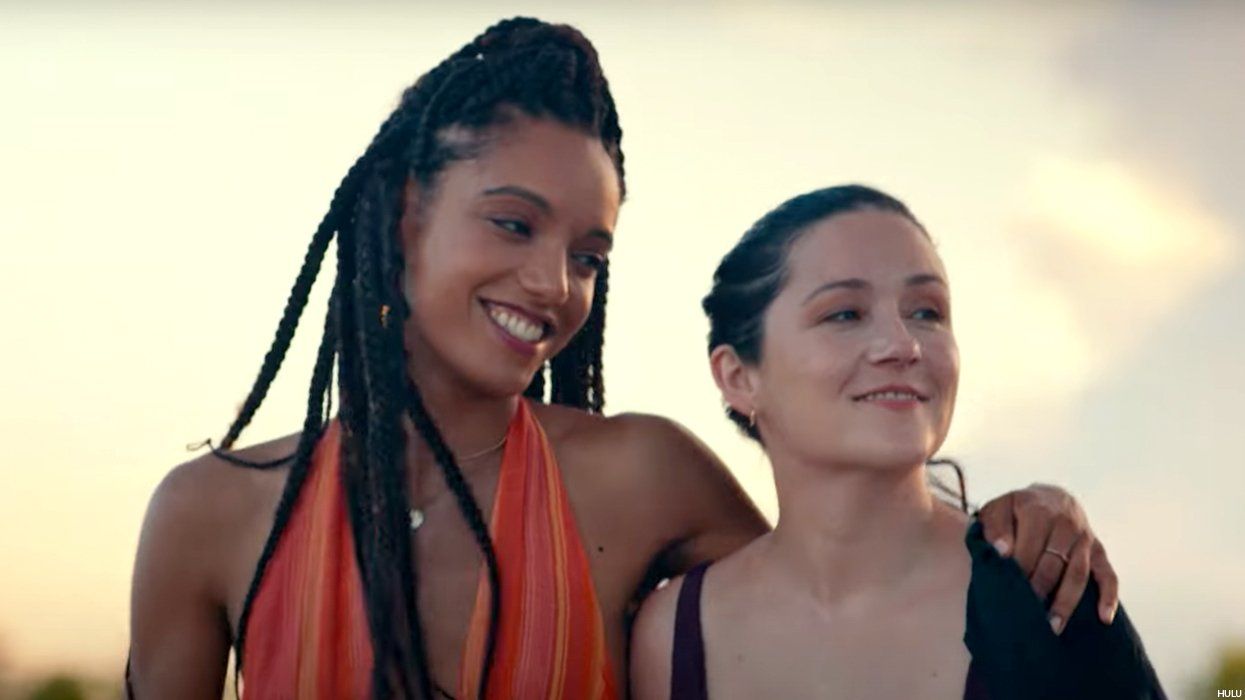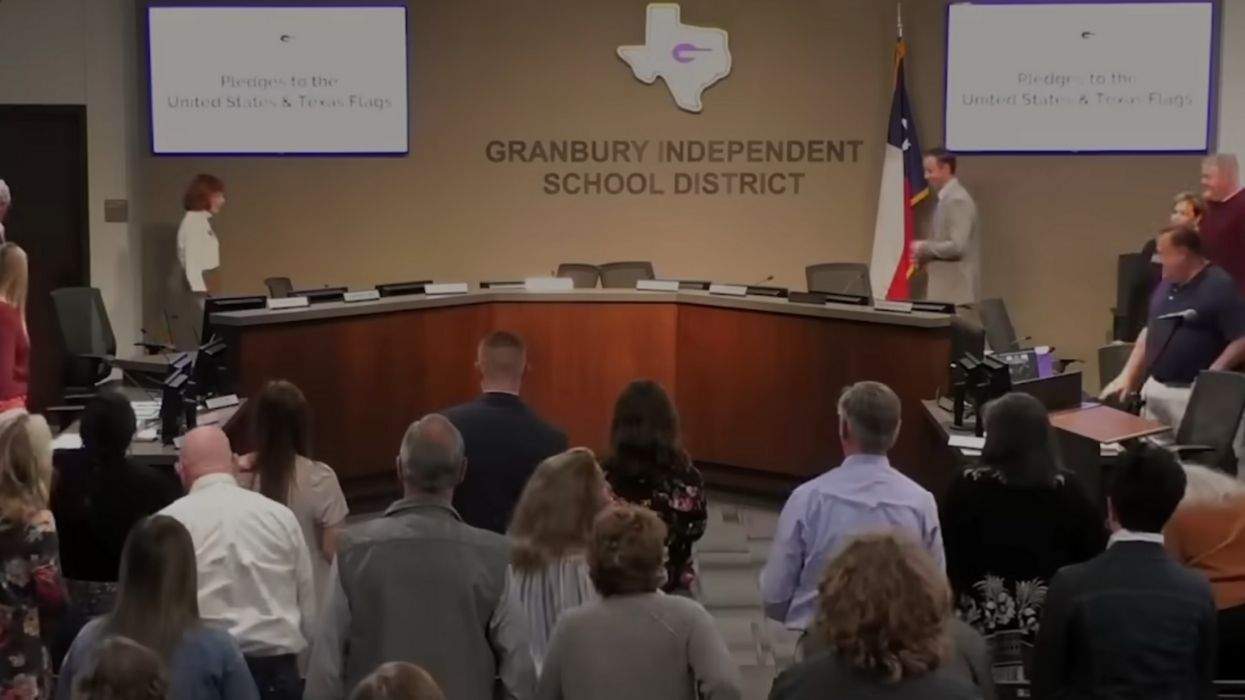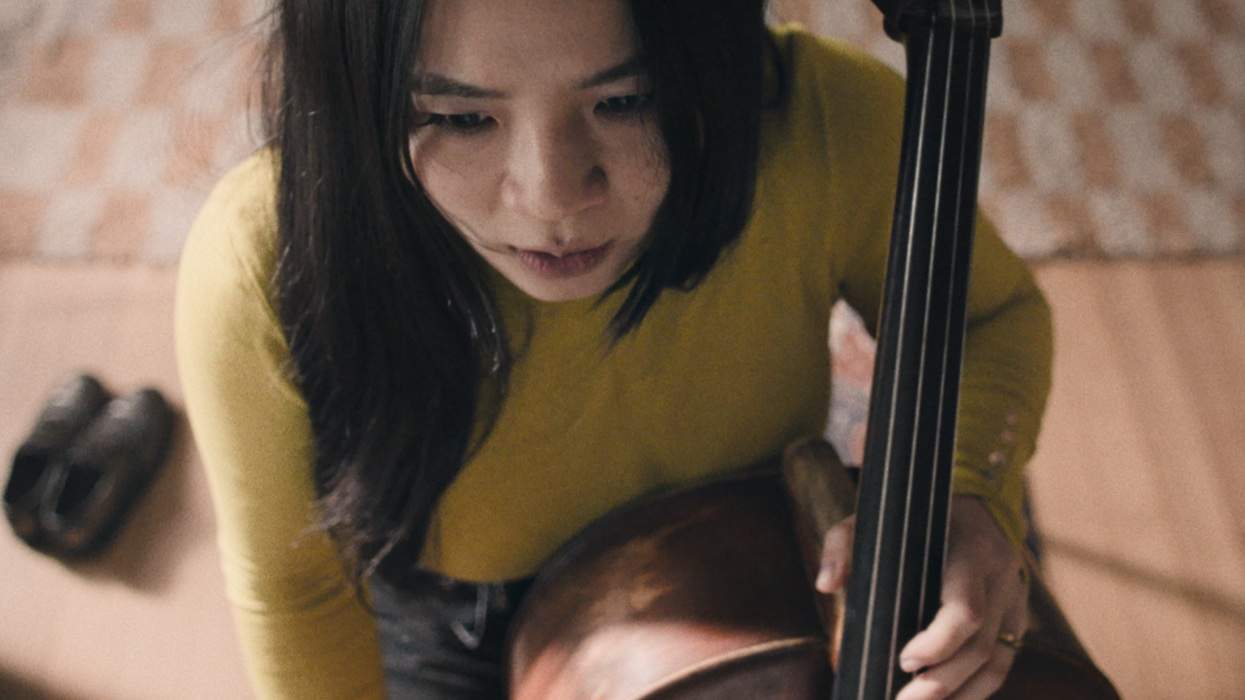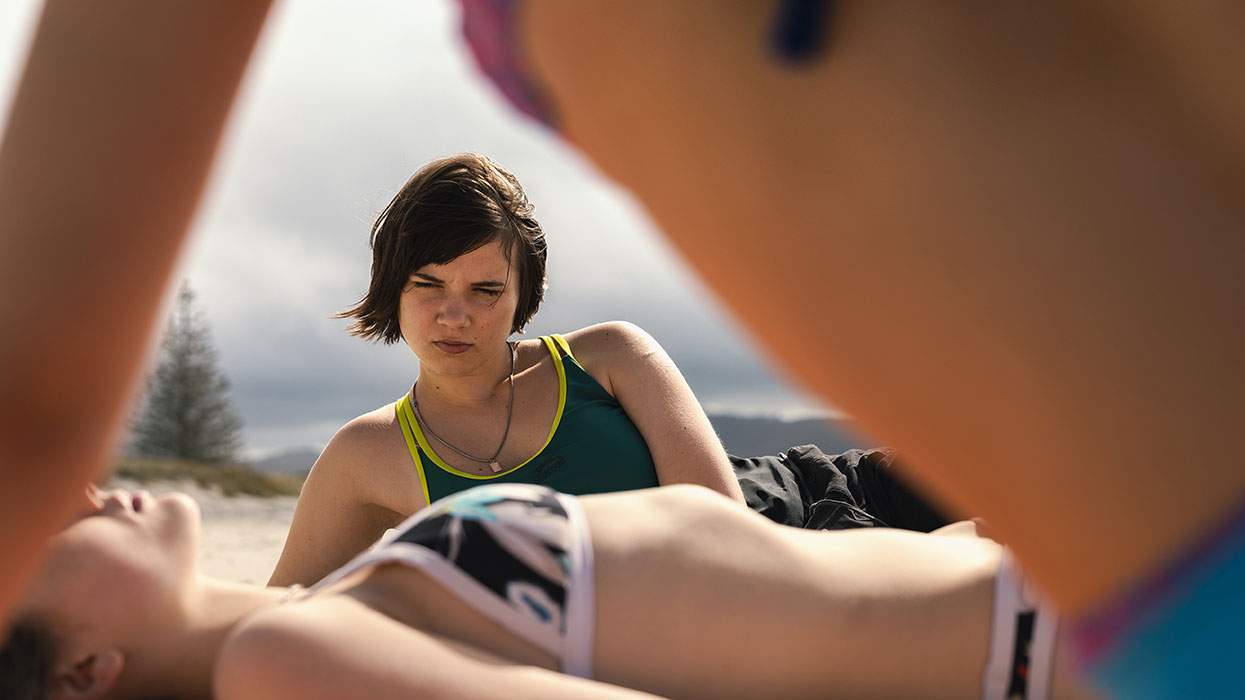From Hulu and 20th Digital Studio, Jagged Mind is a new queer horror film starring Maisie Richardson-Sellers and Shannon Woodward. The film follows Billie (Richardson-Sellers), a woman who suffers from dramatic memory loss and threatening visions as she navigates her budding relationship with the mysterious Alex (Woodward). When Billie finds herself trapped in a time loop, she must go to extreme lengths to break the cycle and reclaim her freedom.
Jagged Mind was helmed by Kelley Kali, director of the acclaimed indie drama I'm Fine (Thanks for Asking) and winner of the 2021 SXSW Special Jury Recognition for Multi-Hyphenate Storyteller. We had the opportunity to speak with Kali about working with the film's queer stars, finding inspiration in unexpected places, representing Haitian culture, and more.
What follows is an edited version of our conversation.
To start, could you tell me about what some of your inspirations were coming into a project like this?
You wanna know my inspiration? You're not gonna guess what it was. It was [Disney and Pixar's] Ratatouille. For camera moves. A lot of camera moves [in Jagged Mind], like the flashing, the way that we show Billie in different places — I took that from this one part in Ratatouille where they go from the chef to the critic but it jumps from room to room. And I really loved how they did it in animation, and I wanted to do it in live action. So there was no specific horror film that I referenced, but I referenced an animation. My director of photography Rasa [Partin] loved it, and we made it happen, and it became one of the most fun things to do on set. "The Ratatouille," everyone called it.
What were some of the things that came with working in the horror genre?
With genre you get to play, right? Like, we got to push the color. On a lot of my other films, we had to keep it grounded and keep it very, you know, normal color. But with this, we did red lighting. Why does [Alex] have red lighting? Why not? That's what's fun about genres: you really, really get to play while using it for storytelling. Like the reds and the blues were important because the blues and the greens represent Billie and her world and her normalcy. And whenever there was red, it was usually somebody she shouldn't be around, something that's kind of consuming her or trying to control her. And you'll see that the blues and the reds eventually clash as we start to get into the thick of the story. So it's just a lot to play with when you get to do genre.
Much of the film takes place in Little Haiti, Miami, and Afro-Caribbean culture and folklore play a major role throughout. How did you land on Little Haiti as a setting?
So, the movie didn't start out in Little Haiti. The script that I pitched on to get this job — I was telling people I didn't think I was going to get the job, because I changed everything. It took place in Manhattan, and it was originally two white women. And so there were so many elements in this script that I shifted. I said, 'I think that the main character should be African American or Afro-Caribbean, and to create an interracial couple because that's where I come from.' And I remember my parents just going out on the street walking, and nobody would do anything aggressive, but the looks that you get? Like, "They're together, for real?" The interracial aspect just laid a little more unspoken tension on [Billie and Alex's] relationship on top of all the other tension that they have.
And with the art gallery in Manhattan — we've seen that. It's usually just white art. So I was like, we should have Afro-Caribbean art, we should bring in different artists that haven't been featured before. And plus there's magic in this movie. I don't think it should be in New York. I think it should be in, like, New Orleans, because that's where people believe in magic. And if they believe in magic, then maybe people will feel like this [story] could happen. Then, for logistical reasons, Miami got brought up, and I said if we go to Miami then we need to do it in Little Haiti.
How did you go about bringing Haitian culture into the film?
I spent a lot of time in Haiti. My background is in anthropology and film. I spent a lot of time studying children's rights and living conditions [there]. I shot films in Haiti. And so I was like, we have to be very respectful if we're going to have any Vodou in it. And so we need to add another character. So then we added [Haitian actor] Jimmy Jean-Louis's character, Papa Juste. We made [Rosaline Elbay's] character Haitian. I really pushed for them to speak Haitian Creole, and not translated, even though you understand the scene — just for the Haitian community.
So we did that and we made sure that the Vodou in the film is protective, and it's serving our protagonist, and it's warning her. Because it's a religion and it needs to be respected, and oftentimes it is not and it's used as a gimmick to scare people. It needs to be respected, so that's what we aimed to do.
This is a very queer film, and you worked with queer actors instead of straight actors playing queer characters. How important was that to you?
It was important to me, but what I really loved was how important it was to Hulu and 20th Digital Studio. Those executives did not play. It wasn't even an option. We were going to the LGBTQ+ community, period. And I love that. I didn't have to push for it. And then the thing that Allyson Morgan did, our writer, she noticed that you see a lot of queer films where [characters] are coming out or they're trying to figure it out. No, we drop right into [Billie and Alex's] lives. They are two normal women who are just dating, and they're people like everybody else. And that's what I really loved about the story. It just normalized the community to have regular dating issues like everybody else. That's what I loved about my team — all of us took that very seriously.
What was it like working with Maisie Richardson-Sellers and Shannon Woodward?
We were so blessed to get Shannon and Maisie. They were fantastic. I keep saying that Alex [played by Woodward] is my favorite character, and I know that people are like, "Really?" One, I think Shannon did a phenomenal job. Two, I don't see her as, like, bad. She just wants love, and who doesn't? Everybody has done something a little extra to try to get the attention of the person they love. Now, her character goes way extra with it, but to me she's not a bad person. She's just doing questionable, unhealthy things and Shannon captured that. I feel like she grounded her and captured that essence.
And Maisie — first of all she's British. So for her to just put on that American accent, there were so many times I forgot that she's British, and when we yell "cut" and she speaks to me and I'm like, who are you? She's just so talented. She brought this softness yet strength to Billie, and a subtleness too. You can play the flashing [when Billie time loops] and the memory loss really big and dramatic. But the way she could just shift in her eyes, I could always see when she was becoming looped. And it wasn't in her face; her muscles weren't moving. It was in the eyes. She's just so smooth. Working with these two women was a blessing for me.
Jagged Mind releases Thursday, June 15 on Hulu. Watch the official trailer below.
Jagged Mind | Official Trailer | Huluwww.youtube.com















